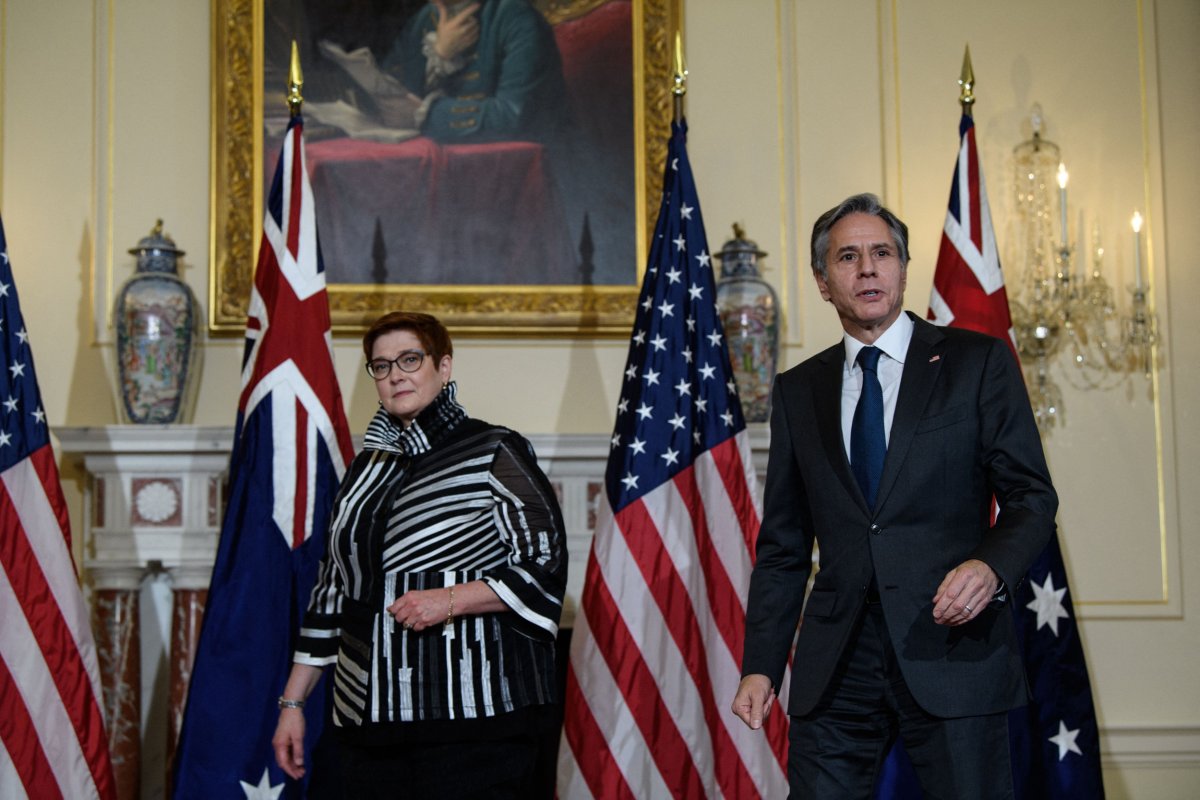In the aftermath of America's catastrophic withdrawal from Afghanistan last month, international alliances appeared to be creaking dangerously. Trust between NATO partners dissolved and the so-called special relationship between the U.S. and the U.K. was put into cold storage. All of this came while the rapacious Chinese government was making ever darker threats toward Taiwan.
Occasionally in world affairs, however, a pleasant surprise comes upon us.
The announcement of AUKUS—a pact between Australia, the U.S. and U.K. to build nuclear-powered submarines in the face of growing Chinese aggression—has stunned and delighted many observers of world affairs. The only duff note in the chorus of approval is being sung by the French, whose $50 billion diesel-electric submarine deal with Australia appears to have bitten the dust as a result of the new agreement.
Through the turbulent years leading up to and following the U.K.'s Brexit referendum in 2016, those of us who wanted to quit the EU argued unstintingly in favor of the positive benefits of the Anglosphere—that is to say, the common values that spring quite naturally from a shared language. To our opponents, we were small-minded isolationists for holding this view. Yet our intention was anything but isolation. America's decision to embark on a defense and security relationship with Australia, helped by Britain, proves this perfectly.
By disentangling itself from the EU, Britain has left behind an institution first envisioned in the 1950s to deal with problems that ended decades ago. NATO faces a similar handicap. It, too, was established in the immediate postwar period to protect non-communist states from the perceived menace of the Eastern bloc, a problem that evaporated with the fall of the Berlin Wall in 1989. The fact is that China, under President Xi Jinping, poses new and different dangers. The increasing militarism of Beijing's communist regime has set alarm bells ringing amongst Western strategists for several years. America knows that scaling up the capabilities of its neighbors is one way of confronting this challenge.

China's naval capability has more than tripled over the last 20 years. The build-up is of such magnitude that it adds the equivalent of the size of the Royal Navy to its battle force every single year. Historians may note that the rapid growth of the German Navy before 1914 was a very good indicator of the horrors to come. The construction of airstrips on contested territories in the South China Sea and the bellicose threats to the independence of Taiwan have worried me for some time. Biden's recent disregard for NATO shows he and his advisers were not able to answer the questions posed by China's escalating operations.
The addition of nuclear-powered submarines, aided by the U.S. and the U.K., to the Australian Navy comes at a very significant moment. Unlike the old diesel-powered submarines, these machines can stay underwater for many months at a time and are much harder for a potential enemy to detect. They are also faster than previous submarines. In addition to building them in conjunction with one another, the three countries have agreed to work together on artificial intelligence and other defense technologies. In every regard, then, this is a 21st-century deal between states whose people not only speak the same language and share so much culturally, but who also see the threat of China for what it is.
The French government has made clear its anger at the AUKUS pact. "It's a stab in the back. We had established a trusting relationship with Australia, and this trust was betrayed," French foreign affairs minister Jean-Yves Le Drian said in an interview on Thursday. Le Drian added he was "very bitter about this break-up." France has stated the increased need to build an EU military, the same sentiment expressed by EU Commission president Ursula von der Leyen in her State of the Union speech to the European Parliament this week. But if an EU Army is ever mounted, it will never be effective. European countries do not have the appetite to spend the money required, and traditionally neutral countries like Sweden, Ireland and Belgium will object to it anyway. Proper defense from an EU fighting force is nothing but a Walter Mitty dream.
The only dent in last night's dramatic and welcome announcement came when Joe Biden appeared not to know the name of Australia's prime minister, Scott Morrison. Bafflingly, the president referred to him instead as "that fella down under." Just as the EU and NATO are out-of-date institutions, President Biden, who is soon to be 79, is not fit for his office either. But at least his generals and admirals are. Let us hope that China sees this pact for what it is: the Anglosphere realigning to protect liberty and freedom in the world.
Nigel Farage is senior editor-at-large of Newsweek's "The Debate" platform.
The views expressed in this article are the writer's own.
Uncommon Knowledge
Newsweek is committed to challenging conventional wisdom and finding connections in the search for common ground.
Newsweek is committed to challenging conventional wisdom and finding connections in the search for common ground.
About the writer
To read how Newsweek uses AI as a newsroom tool, Click here.








